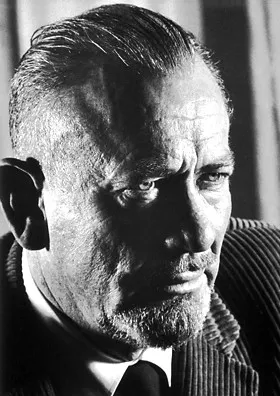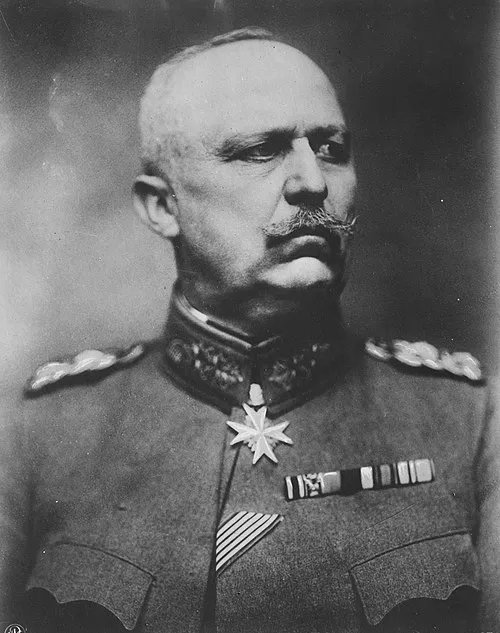
Full Name: John Steinbeck
Nationality: American
Profession: Novelist and Short Story Writer
Notable Awards: Nobel Prize in Literature
Birth Year: 1902
Death Year: 1968
Remembering John Steinbeck: A Literary Titan's Legacy
In the heart of America, a literary giant was born, weaving tales that would resonate through generations. John Steinbeck, heralded for his poignant narratives and rich characterizations, emerged from the small town of Salinas, California. His early years were marked by a profound connection to the land a connection that would serve as both backdrop and character in many of his works.
Steinbeck's journey into writing began not in grandiose halls or prestigious universities but rather in humble circumstances. While attending Stanford University intermittently between 1920 and 1925, he worked various odd jobs mixing cement for a labor crew and even harvesting crops. Ironically, it was these very experiences that laid the foundation for his understanding of humanity’s struggles.
However, it wasn't until he released “Cup of Gold” in 1929 that he began to gain recognition as an author. This novel drew inspiration from the legend of pirate Henry Morgan but also hinted at deeper themes about ambition and morality. Despite this initial success, Steinbeck faced numerous rejections before truly establishing himself a reminder that even the most gifted writers encounter obstacles on their paths.
The Great Depression: A Catalyst for Change
The tide truly turned during the Great Depression when Steinbeck became increasingly aware of societal injustices. Perhaps it was his empathy for disenfranchised communities those crushed under economic despair that propelled him to pen some of his most memorable works. "Of Mice and Men," published in 1937, introduced readers to George and Lennie two displaced ranch workers dreaming of a better life amidst harsh realities.
This novella struck chords across America; who knows how many found reflections of their own struggles within its pages? With characters that embodied hope yet faced relentless adversity, Steinbeck’s writing transcended mere storytelling it became a form of social commentary.
The Grapes of Wrath: An Epic Journey
Yet arguably, it was “The Grapes of Wrath,” published in 1939, that cemented his legacy as one of America's greats. The novel chronicles the Joad family's harrowing journey from Oklahoma to California during the Dust Bowl era an exodus fueled by desperation yet punctuated by indomitable spirit. Through vivid imagery and heartfelt prose, Steinbeck painted a visceral picture; one could almost feel the dust settling on their own skin while reading! His portrayal highlighted not only personal tragedies but also collective suffering a profound reflection on American society's failings.
Ironically enough, while critics lauded "The Grapes of Wrath," others condemned it as overly political or pessimistic; however, its impact cannot be overstated! It resonated deeply with readers facing economic hardships themselves giving voice to those who had none and eventually earned him both acclaim and infamy.
A Nobel Prize Winner: Recognition on an International Stage
By 1962 the culmination year before his passing Steinbeck had secured numerous accolades including the coveted Nobel Prize in Literature! Historians recount how this honor was bestowed upon him largely due to "his realistic and imaginative writings" which illuminated human experiences across diverse landscapes.
A Complex Character Behind Closed Doors
Beneath all this recognition lay complexities far beyond public perception; friends often described him as introspective yet sometimes aloof! Perhaps like many artists struggling with inner demons... He grappled with issues surrounding alcoholism throughout parts of his life not just alcohol itself but what it represented: escape versus confrontation!
This duality perhaps contributed greatly towards shaping narrative arcs centered around conflict resolution through community collaboration instead or at least attempting reconciliation within fractured relationships as depicted prominently within several narratives such as “East Of Eden.” With themes rooted firmly among family ties bound by love , these stories served both catharsis & contemplation simultaneously!
The Enduring Legacy: From Page To Screen And Beyond
The lasting influence has only intensified over time... Various adaptations have brought forth new audiences eager to delve into timeless tales crafted so masterfully by this literary titan! Adaptations ranging from films like John Ford's Academy Award-winning version ‘The Grapes Of Wrath’ continue captivating viewers today! Even television shows have drawn inspiration from subtle nods found nestled deep inside scripts challenging societal norms toward more blatant portrayals centering around survival against all odds encountered along journeys undertaken!
An Ongoing Conversation With Today’s Issues
This brings us back around full circle to consider how relevant discussions initiated centuries ago remain profoundly significant even now... Themes addressing poverty-stricken individuals seeking dignity amidst oppressive systems manifest across modern media platforms urging change while grappling heavily against societal constraints persistently holding them down...
A Final Reflection On The Man Who Captured Humanity In Words
On December 20th ,1968 John Steinbeck passed away leaving behind an indelible mark etched onto literature’s fabric forevermore… As society continues navigating complexity entangled through modern times often fraught with division it seems fitting then we revisit those voices echoing wisdom long buried beneath layers accumulated over decades past...






